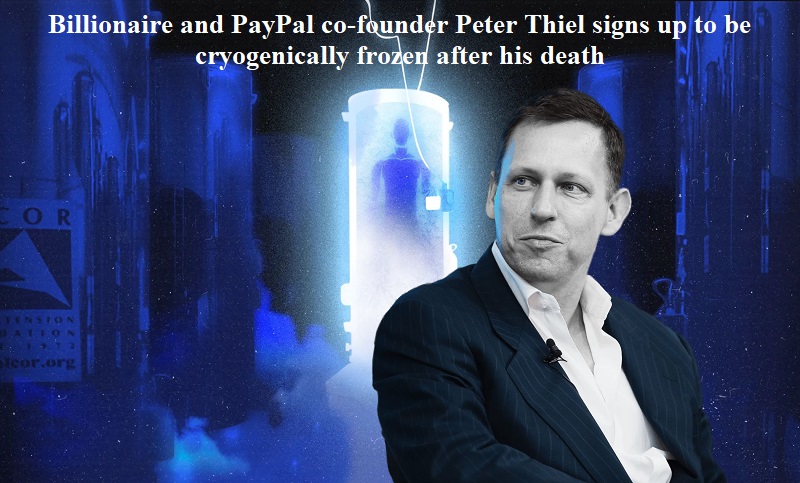
Peter Thiel, a German-American billionaire and co-founder of PayPal, has recently disclosed that he has signed up to be cryogenically frozen after his death in the hopes of being revived in the future. However, he expressed skepticism about the technology’s capacity during an appearance on journalist Bari Weiss’s podcast. Thiel explained that he thinks cryonics is worth trying, but he doesn’t necessarily expect it to work.
Cryogenic freezing is a concept that originated from the practice of freezing food using liquid nitrogen. Cryonics involves preserving humans and animals at cryogenic temperatures in the hopes that they can be restored to healthy living conditions in the future. Cryonics can only be performed after the pronouncement of legal death.
Once the cryonic subject is pronounced “legally dead,” dry ice is used to keep the body at a low temperature. Cryoprotectants, such as antifreeze, are infused to prevent ice crystal formation, which could kill cells, before the temperature is slowly lowered, and the body is preserved in liquid nitrogen at extremely low temperatures below -130 degrees Celsius. The body must be kept at low temperatures, but dehydration and freezing can also prove lethal to living cells.
The ultimate goal is to re-warm and revive the subject one day, but there is no evidence or guarantee that this is possible. Thiel is known to be a supporter of cryonics and other anti-aging technologies, having signed up to be preserved after death by the biotech firm Alcor in 2014.

Post Your Comments